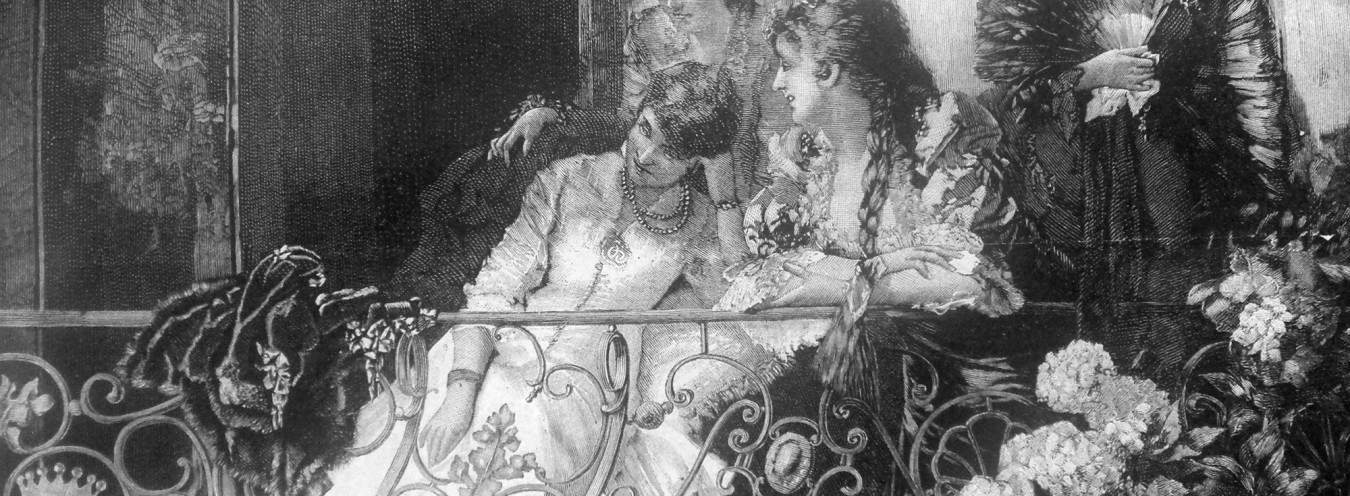
Fin de siècle
‘Trade is vanity… politics too… that journey to Turkey as well… Life is mere vanity and folly, of which we’ve forgotten the start and don’t know the end. Where does the truth lie?’ (11)
The notion of the fin de siècle allows for a complex metaphorical reading. In the narrative world of The Doll, it designates a certain state of consciousness on the part of the characters and describes both the relations between them and the shape of the world that surrounds them.
The reality depicted in the novel is disintegrated and atomised: it is already breaking down. The old forms of experiencing and participating in the real world have become obsolete while the new ones have not yet taken shape. This predicament affects both individuals (as illustrated by Wokulski’s idealised notions of love) and the historical process (Rzecki’s self-abandonment in the already defunct myth of Napoleonic rule and the ideals of the past). The social structure, previously tight-knit and based on clear social divisions, is now falling to pieces. The process of democratisation among different social strata (aristocracy, bourgeoisie, gentry, and national minorities) is just beginning to gain momentum and does not yet determine the shape and pace of life. The law of continuity also suffers: the present is not anchored in the experiences of the past, and the future seems uncertain and bleak.
In The Doll, human relationships are marked with suspicion and a lack of trust. The flow of information within the society is mostly limited to rumour, secret denunciation, eavesdropping and peeping (e.g. through the unshaded windows of Helena Stawska, or thanks to the pandering “career” of Mrs Meliton). The noble and high-minded fail; rogues and crooks succeed brilliantly – and so, the world of The Doll is full of mediocrity and tackiness. The sense of disappointment is prevalent. The life of Wokulski, the novel’s protagonist, unfolds to the painful rhythm of self-delusion and disillusionment, high hopes and disappointments. The helpless and confused Ignacy Rzecki tries to find escape in his memories, reliving the past in his mind over and over again. Both individuals and entire communities are facing the unknown. The novel’s coda unequivocally marks the end of the old, ordered world and its values with the death of Rzecki, their guardian and “chronicler.”
The Doll clearly indicates that the life it depicts is descending into chaos, or even heading for catastrophe. The narrative reality is permeated with the sense of uncertainty and insecurity. In this context, it is of symbolic significance that a specimen of metal with extraordinary properties, invented in Professor Geist’s laboratory, is offered to Izabela Łęcka and then lost – most probably during amorous frolics with her cousin, Kazimierz Starski. The reality turns out to have no plan nor reason, and is unlikely to be ruled by Providence. Instead, the causative power belongs to pure coincidence, which can be read as the irony of fate.
→ Irony; → Rumour; → Coincidence; → Society;
Bibliografia
- E. Paczoska, Lalka czyli rozpad świata, Białystok 1995.
- A. Mazur, Jeszcze o kamieniu w Lalce Prusa, in Jubileuszowe „Żniwo u Prusa”, ed. Z. Przybyła, Częstochowa 1998.
- Prus i inni, ed. J. A. Malik and E. Paczoska, Lublin 2005.



